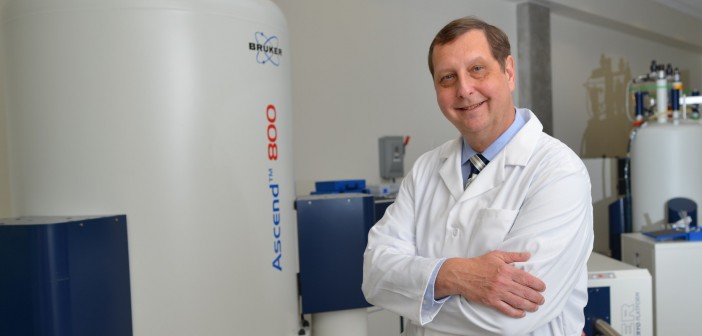The director of Translational Cardiovascular Research at SBP’s Lake Nona campus was recently named a Fellow of the American Association for the Advancement of Science (AAAS). E. Douglas Lewandowski, PhD, was one of 33 scientists selected to become a AAAS fellow in the Section on Medical Sciences, recognizing his “distinguished contributions to fundamental aspects of cardiac metabolism and their implications for heart disease.”
“I’m honored to have been nominated and accepted to this group of esteemed investigators,” said Lewandowski, who also serves as SBP’s liaison to the Translational Research Institute for Metabolism and Diabetes at Florida Hospital. “Receiving such a clear acknowledgment of the significance of our work over the last 25 years is exceptionally gratifying.”
Lewandowski is an opinion leader on the metabolic basis of heart failure—how the heart’s sources and consumption of energy change as it deteriorates as a result of heart attacks, diabetes, high blood pressure, arrhythmias, or congenital defects. Most recently, his team showed that oleate, a common dietary fat found in olive oil, restores proper metabolism and enhances pumping power in an animal model of heart failure. This finding provides further evidence that consuming healthy fats improves heart health.
He has also pioneered novel methods that use the magnetic properties of atomic nuclei to measure metabolism within intact beating hearts, which have since been applied to other organs such as the brain. These technological advances enable investigation of vital questions related to metabolism and heart disease, including whether changes in fuel reliance impact prognosis and whether they represent targets for therapy.
Lewandowski joined SBP last winter, moving from the University of Illinois at Chicago and bringing with him two NIH R01-funded projects and an equipment grant for state-of-the-art capabilities to visualize and quantitatively track heart metabolism. His current research addresses the impact of metabolic changes in the failing heart on whole body metabolism, and how the heart’s metabolic response to stress differs between men and women.
“Our ongoing investigations aim to find the physiological basis for the clinically observed link between heart failure and metabolic syndrome, and how gender differences affect the risk for heart failure,” Lewandowski explained. “Our findings could lead to new ways to diagnose heart dysfunction at early stages and hopefully prevent further damage.”
